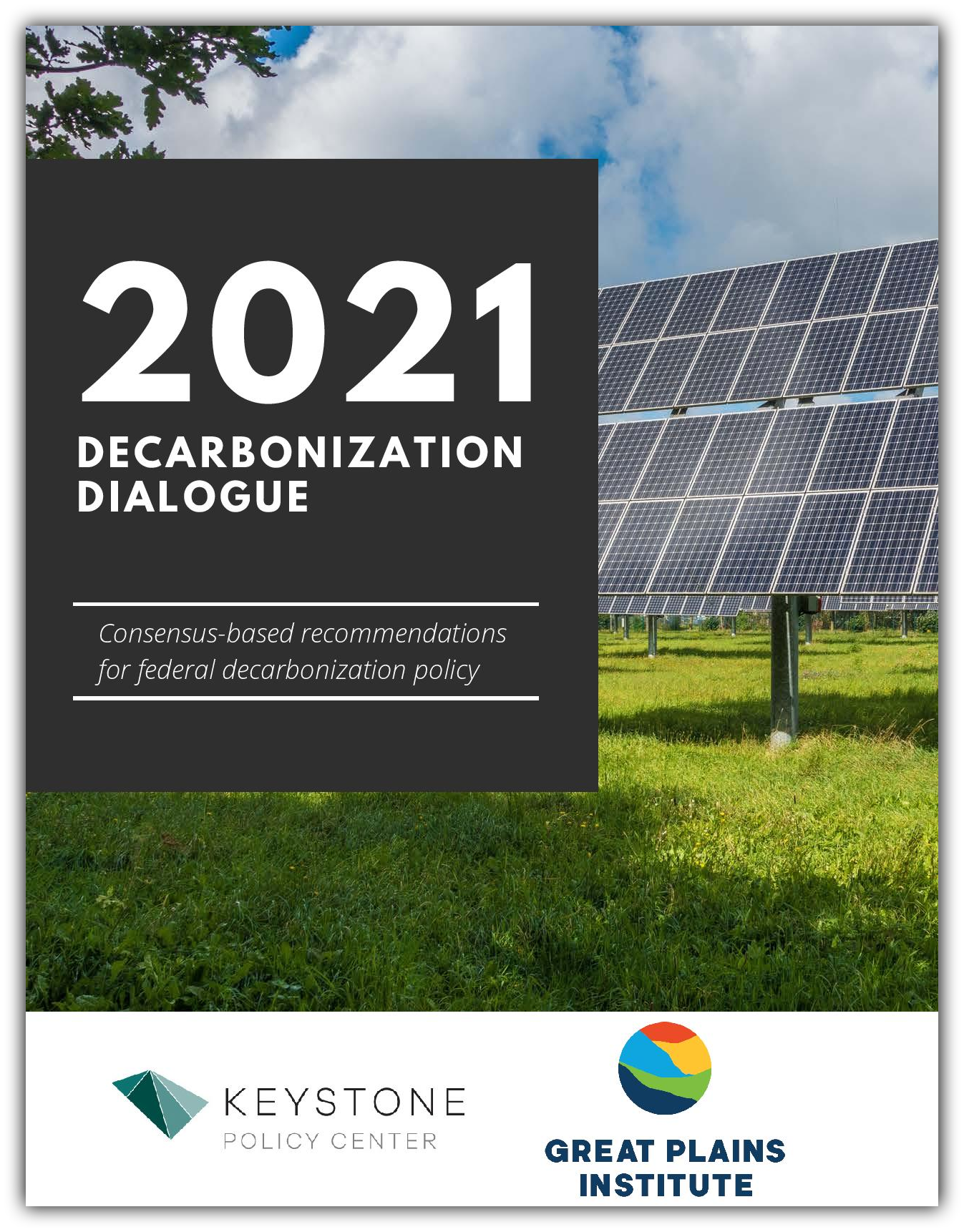Background/Overview
The Issue: Participants aimed to develop a bipartisan, cross-sector, collaborative set of recommendations that could quickly inform debate around climate and decarbonization action regardless of which party was in the majority and who was in the White House.
The climate crisis presents significant risk for the economy. Significant climate events like devastating winter storms in Texas, catastrophic wildfires, and major flooding demonstrate the acuteness of climate risks for both American families and our power, transportation, and agriculture systems. Ongoing decarbonization policy must consider adaptation, risk, and resiliency alongside mitigation. Whether focused on core principles and general considerations or specific policy ideas, Keystone’s Decarbonization Dialogue offered substantive guidance, supported by bipartisan and diverse interests, that decision-makers can act on today.
Our Approach
The Decarbonization Dialogue, led by Keystone Policy Center and Great Plains Institute, convened experts from different sectors to develop recommendations for near-term federal policies to drive economy-wide and equitable decarbonization. The recommendations were developed by stakeholders with diverse interests and reflect months of dialogue between and among sector-specific working groups. They were publicly launched in February 2021.
The Results
The Decarbonization Dialogue was designed to provide a bipartisan, collaborative set of recommendations that could quickly inform debate around climate and decarbonization action regardless of which party was in the majority and who was in the White House. Dialogue participants were organized into three working groups focused on power, transportation, and agriculture. While they are organized by sector, the recommendations reflect many months of cross-sector dialogue. They cover the following areas:
- Cross-Cutting Recommendations
- While there are many areas of overlapping interest among the power, transportation, and agriculture recommendations, some cut across all sectors and would provide the foundation for the others.
- Power Recommendations
- These recommendations facilitate access to reliable, low cost, clean electricity across the entire country.
- Transportation Recommendations
- These recommendations aim to decrease emissions from the transportation sector today while planning for and investing in the transportation technology, systems, and infrastructure needed for the future.
- Agriculture Recommendations
- These recommendations call attention to opportunities for agricultural producers to advance decarbonization, especially where such opportunities present voluntary solutions for farm owners/operators and are shared with the power and/or transportation sectors.
The supporting report provides background on the Dialogue’s recommendations, including information on scope, process, participants, and the nature of the discussions that generated the final recommendations. It also identifies issues that merit further dialogue and collaboration.
Click here to learn more about the Decarbonization Dialogue and to download its reports.





